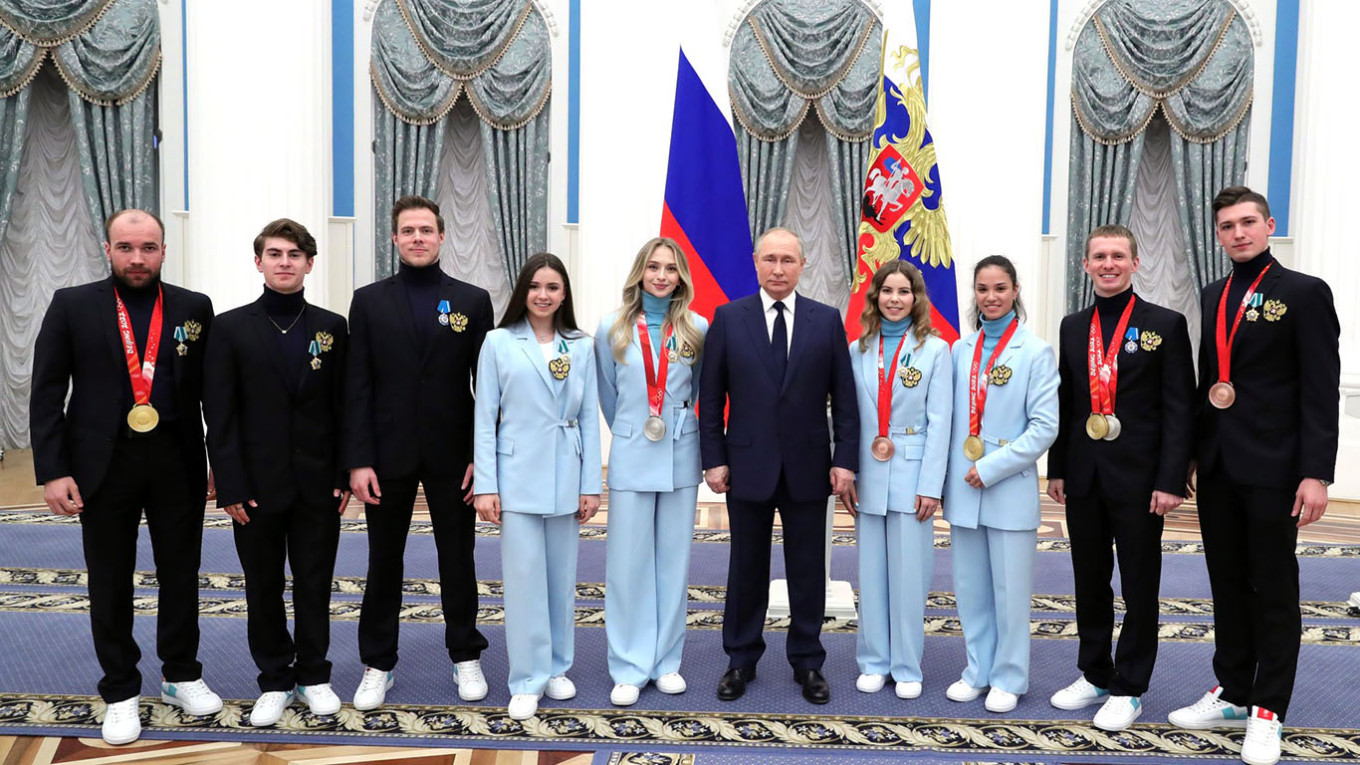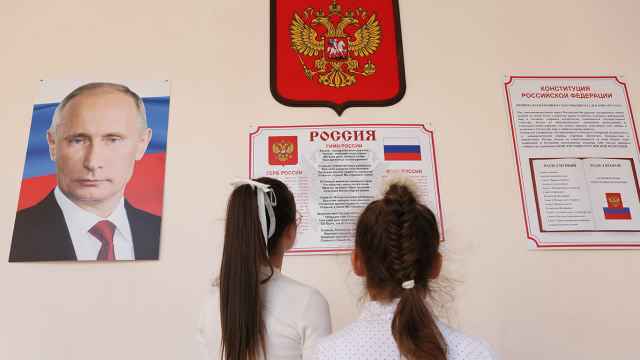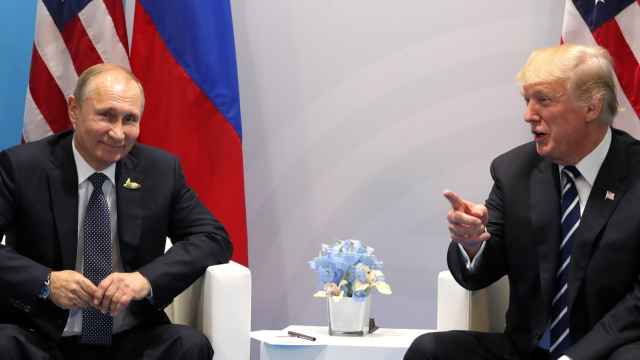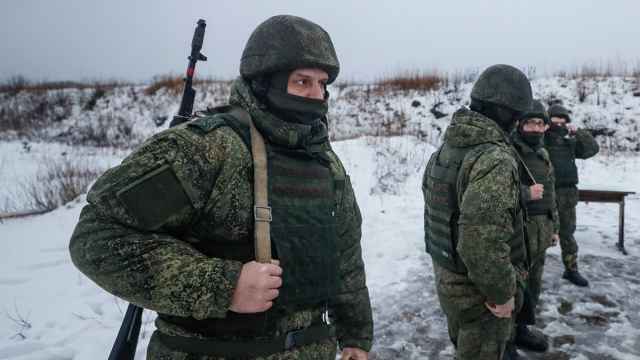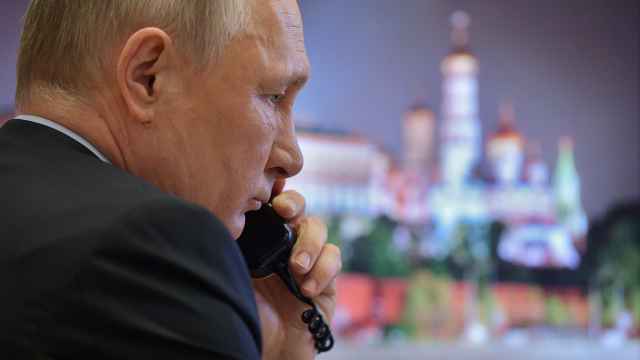To bolster its claims of rampant Russophobia in the West, the Kremlin not only cites sanctions imposed for the war against Ukraine, but also perceived attacks on Russian culture and identity.
For example, restrictions on the participation of Russian athletes in international competitions meant they could only compete under a neutral flag.
Moscow's use of sport as a powerful propaganda tool goes as far back as the USSR. President Vladimir Putin’s regime has almost seamlessly adopted this strategy which is why the huge 2015 revelation of systematic, state-sponsored doping by Russian athletes did not surprise anyone.
Russian athletes know that they are being used for political purposes, and the Kremlin knows that the West knows it too. Therefore, Russian propagandists took the fact their athletes would be barred from competing under their national flag as a foregone conclusion and criticized it rather lazily. Instead, they said they had no intention of going anyway, talking up the BRICS games in Kazan and the World Friendship Games in Yekaterinburg. Therefore, only 15 Russian athletes went to France in neutral status.
The fate of Russian culture after the war is more complex. Canceling everything Russian because it could potentially be weaponized is anathema to the liberal traditions of Western countries. Russian propagandists and the special services take full advantage of this. Since the annexation of Crimea, investigations have revealed that Russian cultural centers across the world have been used to spread disinformation Not to mention their use as “umbrellas” for SVR and GRU operations, both non-kinetic and, in fact, kinetic.
Since 2013, Putin used claims that Russian speakers and their culture were under attack in Ukraine to justify the annexation of Crimea and full-scale invasion of the country. This claim was repeated by Foreign Minister Sergei Lavrov at the United Nations.
Russian propagandists and politicians attack every post-Soviet republic in this way. Kazakhstan is regularly mentioned on Russian shows in connection with the alleged worsening situation of Russian-speaking citizens in the country’s north. After seeing what Russia is willing to do under these pretenses, local elites cannot help but be worried.
History and the Second World War, or rather its segment under the Soviet name “Great Patriotic War” is weaponized by comparing the attack on Ukraine to defending the motherland against invading Nazis. Thus, monuments to the fallen, mass graves and other sites of remembrance are dragged into the culture war.
Attempts by former Soviet countries to reduce the physical presence of these objects trigger a loud reaction and threats. The recent decision to demolish the Panfilov Division Museum in Bishkek immediately reanimated the narrative that Kyrgyzstan was an unreliable partner, despite its track record of helping Russia circumvent Western sanctions. The same is happening in the Baltic states, like when the Ludza Regional Council in Latvia changed legislation to dismantle monuments located over the graves of Soviet soldiers.
Museum exhibitions have also been weaponized as Russia becomes increasingly isolated. Through this back door, the Kremlin can still make some inroads into Western and other “unfriendly” countries. The International Council of Museums plays a leading role in these attempts. The humanitarian, non-political nature of the International Council of Museums makes appeals to stop what can be spun as vital cultural exchange and dialogue impossible.
The weaponization of the interpretation of history and the crystallization of this process in museum exhibitions and events is actually written in Russia’s National Security Strategy. In the most concentrated, form the real purpose of the Kremlin version of history and the Kremlin museum exhibitions can be seen in the occupied Ukrainian territories, where all this is used for propaganda to the population and teaching Ukrainian children and teenagers.
No one on the Russian side is hiding anything. The chairman of the Russian Historical Society and chairman of the board of the History of the Fatherland Foundation, under whose auspices many events and projects on the weaponization of history are held, is none other than Sergei Naryshkin, director of the Foreign Intelligence Service.
The Kremlin's weaponization of religion deserves a separate article. The strategic narrative that Orthodox Christians in Ukraine are being persecuted is promoted both within Russia and beyond its borders It is promoted not only by the Russian Orthodox Church. Depending on the intended audience, Protestants do it too. For example, Bishop Sergey Rakhovsky of the Russian Association of the Union of Christians of Evangelical Faith of Pentecostal Christians has attempted to influence U.S. society and politics by endorsing the attack on Ukraine. American politicians pay close attention to the views of their religious followers. Speaker Mike Johnson admitted that he decided to stop blocking a vote on a $61 billion aid package to Ukraine out of religious sentiment when he saw the damage Russia was doing to its civilian infrastructure.
It can be argued that the weaponization of everything the Kremlin could turn its attention to is the result of a political culture aimed at subordination and assimilation instead of cooperation and exchange, even if the Kremlin insists on the opposite.
Therefore, Russian culture, language and even museums have been turned by the Kremlin into tools to achieve its goals. Bans and restrictions by countries in Europe and beyond are a consequence of Russia’s aggression, not a cause. It is a defense against abuse and manipulation, not a means of attack or an end in itself.
To paraphrase Putin's famous statement at the beginning of the occupation of Crimea: let them try to ban the Russian language, culture and museum exhibitions. Our propaganda and disinformation will stand not ahead, but behind them.
A Message from The Moscow Times:
Dear readers,
We are facing unprecedented challenges. Russia's Prosecutor General's Office has designated The Moscow Times as an "undesirable" organization, criminalizing our work and putting our staff at risk of prosecution. This follows our earlier unjust labeling as a "foreign agent."
These actions are direct attempts to silence independent journalism in Russia. The authorities claim our work "discredits the decisions of the Russian leadership." We see things differently: we strive to provide accurate, unbiased reporting on Russia.
We, the journalists of The Moscow Times, refuse to be silenced. But to continue our work, we need your help.
Your support, no matter how small, makes a world of difference. If you can, please support us monthly starting from just $2. It's quick to set up, and every contribution makes a significant impact.
By supporting The Moscow Times, you're defending open, independent journalism in the face of repression. Thank you for standing with us.
Remind me later.



